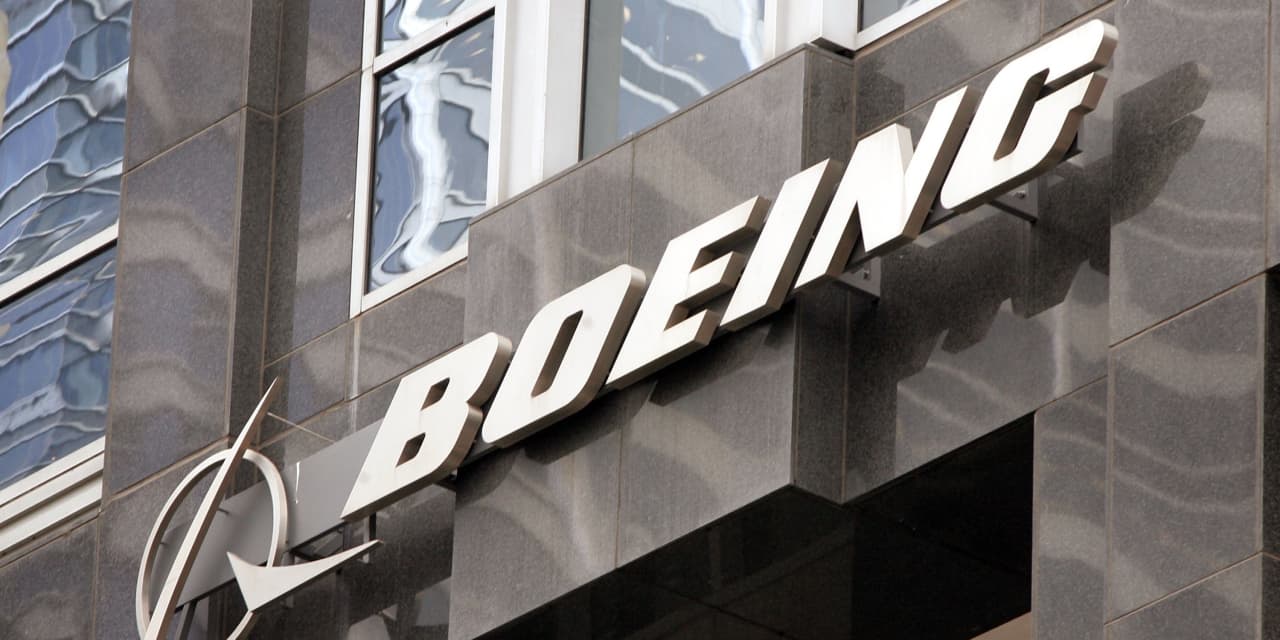Boeing
stock was down—but stable—in morning trading after the Federal Aviation Administration said that door plugs on a second version of the 737 should be inspected after one blew out of a 737 MAX 9 jet operated by
Alaska Air Group
this month.
The FAA grounded some 171 of the MAX 9 jets after the midair incident.
Boeing,
airlines, and safety authorities have been working since Jan. 5 to inspect, repair, and prepare planes for a return to service. The latest news means that a second type of plane is affected.
Boeing stock dropped in premarket trading but moved higher at the market’s open. As of 10:40 a.m., shares were down 57 cents, or 0.3%, at $214.45. The
S&P 500
and
Nasdaq Composite
were up 0.3% and 0.4%, respectively.
On Sunday, the aviation regulator said in a news release that emergency-door-plug bolts on Boeing 737-900 ER planes, which haven’t been grounded, should be inspected. While the 900 ER, an older version of the 737, isn’t a MAX, many of the planes have door plugs. Plugs have been used for decades when an emergency door isn’t required because of seating configurations.
Loose bolts have been found on some MAX door plugs that were inspected after the grounding. Some loose plugs were found on 900 ER jets as well, after airlines checked.
Boeing delivered some 500 of the 737-900 ER jets from around 2007 through 2019. About 380 of the jets have the door plug. All the planes would have had, at least, one heavy maintenance check. Those inspections are done every two years or so, and address all of the plane’s systems and components.
There haven’t been any 900 ER door-plug incidents to report. Boeing wrote in an email: “We fully support the FAA and our customers in this action.” The FAA didn’t immediately respond to requests for comment about the expansion of the door-plug inspections to include other models.
The new FAA statement, and new plane type added into the mix, is another reminder for investors that
Boeing
faces a lengthy delay in returning the MAX 9 to service. The silver lining for investors is that the MAX 9 is a relatively low-volume aircraft. Wall Street expects about 30 to be delivered in 2024 out of a total of about 700 jets.
The 737-900ER is also a lower-volume plane. Boeing delivered some 7,600 737-model jets from 1997 to 2019.
Coming into the week, Boeing stock was down about $45 a share, or 18%, so far in 2024, wiping out some $27 billion of market value. It’s a steep drop, but in the final three days of the past week alone, shares have rallied by about $15, or 7%, as initial selling pressure following the incident abated.
Write to Al Root at [email protected] and Brian Swint at [email protected]
Read the full article here




